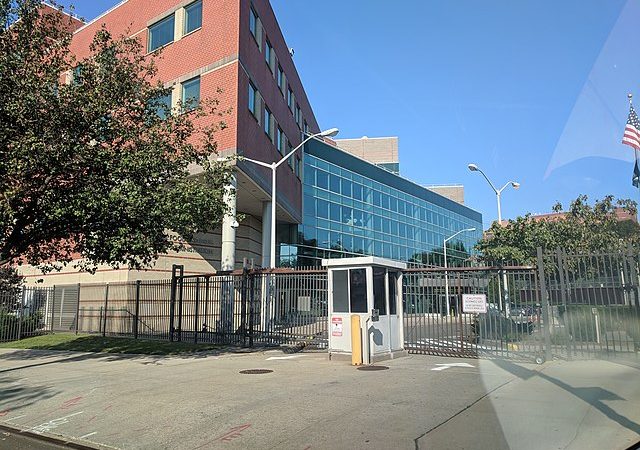The Supreme Court will hear on Tuesday a major challenge to the abortion pill brought by doctors and medical associations.
In FDA v. Alliance for Hippocratic Medicine, one of two cases on abortion the Supreme Court will hear this term since overturning Roe v. Wade in 2022, the justices will consider the U.S. Food and Drug Administration’s (FDA) decision to roll back safety regulations for the chemical abortion drug mifepristone. Doctors who sued the FDA contend that the removal of safety standards once deemed “essential” makes it more likely women will require medical treatment, forcing OB-GYNs and emergency room doctors to address the “serious complications caused by these drugs.”
“My moral and ethical obligation to my patients is to promote human life and health,” Dr. Ingrid Skop, a member of the plaintiff organization American Association of Pro-Life Obstetricians and Gynecologists (AAPLOG), wrote in a declaration. “But the FDA’s actions may force me to end the life of a human being in the womb for no medical reason.”
In 2021, the FDA allowed distribution of mifepristone through the mail and removed the requirement for an initial in-person visit. Earlier, in 2016, the agency removed many of the safeguards implemented when the pill was approved in 2000, allowing it to be used through ten weeks of pregnancy, rather than seven.
“A lot of people have no idea that under Joe Biden’s [FDA], abortion drugs can be sent through the mail to their kids, even if they live in a pro-life state,” Katie Glenn Daniel, state policy director for Susan B. Anthony Pro-Life America, told the Daily Caller New Foundation.
If the Supreme Court sides with the doctors, it would mean a return to pre-2016 regulations on mifepristone while the lawsuit continues in the lower courts.
Four medical associations and four individual doctors brought the initial challenge in 2022, alleging the FDA’s relaxed rules put women’s lives at risk and harm doctors in various ways, from forcing them to finish incomplete chemical abortions in violation of their conscience, to straining hospital resources. In addition to challenging the removal of safeguards, they argued the FDA’s rapid approval of the drug was flawed from the start, requiring the agency to designate pregnancy as an “illness” and the pill as providing a “meaningful therapeutic benefit.”
Only three questions are before the Supreme Court on Tuesday: whether the doctors have standing to bring the case, the FDA’s decision to roll back safety regulations after 2016 and the preliminary injunction granted by the lower courts.
A district court judge ruled in April 2023 that the FDA must reverse its approval of the abortion pill. The Fifth Circuit held in August that the doctors’ challenge to the 2000 approval was untimely, but agreed that FDA’s loosening of restrictions after 2016 should be undone.
“In loosening mifepristone’s safety restrictions, FDA failed to address several important concerns about whether the drug would be safe for the women who use it,” the Fifth Circuit ruled.
The FDA and abortion pill makers Danco Laboratories argue the doctors have not sufficiently shown they have been harmed, claiming that the Fifth Circuit’s reasoning for granting them standing “would bless any suit by an association of healthcare providers challenging any agency decision that might affect a potential patient.”
“Some anti-depressants can increase risks of suicidal thoughts; some drugs to treat one form of cancer can increase the risk of another; some drugs cause birth defects; the list goes on,” Danco Laboratories argues in its brief.
They also challenge the safety claims, writing that the FDA “comprehensively detailed the evidence supporting each decision, made reasonable predictive judgments based on the data, and explained why the evidence supported labeling changes.”
Members of Congress have filed amicus briefs on both sides of the case. In a brief favoring the FDA filed by 263 members, including Democratic Senate Majority Leader Chuck Schumer, they argue the Fifth Circuit’s decision “threatens the congressionally mandated drug approval process and poses a serious health risk to pregnant individuals by making abortion more difficult to access.”
A separate brief filed by 145 pro-life members of Congress argues the FDA “exceeded its congressionally authorized power” by removing the safety regulations.
“Mifepristone carries significant risks for women and girls, and the FDA exacerbated these risks by unlawfully deregulating chemical abortion drugs,” they wrote.
U.S. abortions hit 1 million in 2023, the highest level in a decade, in large part due to increased access to the chemical abortion pill following the FDA’s decision to lift the in-person requirement, according to a March Guttmacher Institute report. The FDA’s numbers show one in 25 women who use mifepristone will make a trip to the emergency room, according to the plaintiff’s brief.
“Few people die from chemical abortions because of the excellent care they receive from OBGYN doctors, but the infrequency of deaths conceals the danger that these drugs pose to women and girls—especially when administered without proper supervision,” Dr. Nancy Wozniak, who serves on the board of the AAPLOG, wrote in a declaration filed as part of the case.
Katelynn Richardson on March 24, 2024

